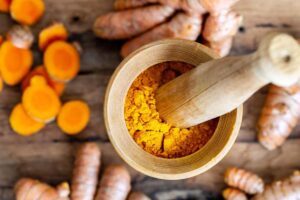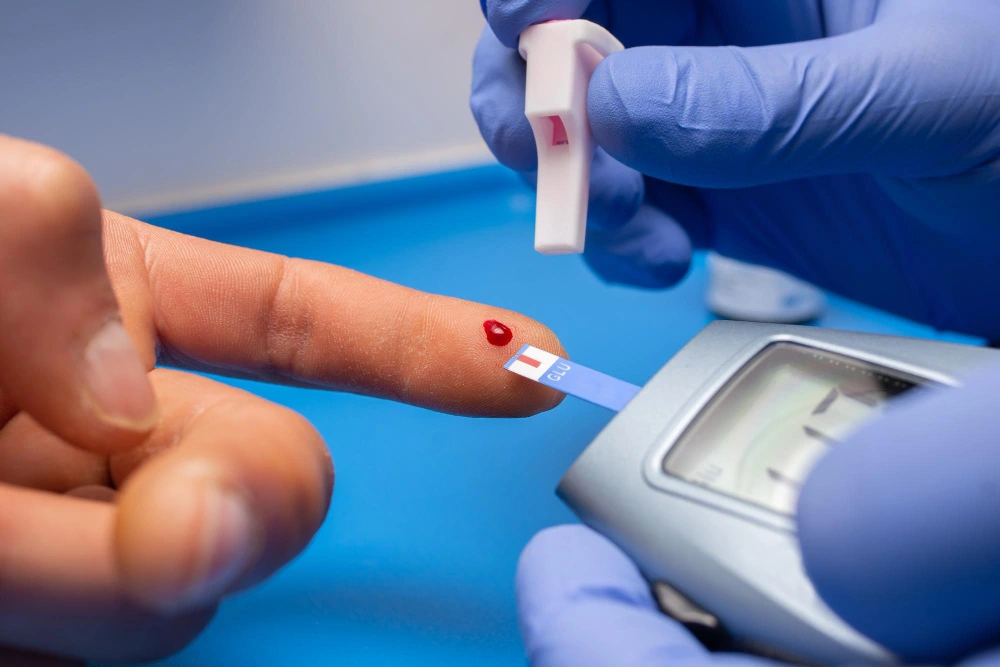Diabetes, a chronic condition affecting millions globally, has traditionally been managed through medication, diet, and lifestyle changes. However, increasing number of individuals and healthcare practitioners are turning towards holistic medicine as a complementary approach to enhance well-being and control blood sugar levels. This guide explores the potential benefits of incorporating holistic methods for diabetes into your routine, providing insights into how these practices can support overall health and well-being.
Contents
Is There a Holistic Medicine For Diabetes?
 Holistic medicine approaches health and healing by considering the whole person, aiming to achieve optimal health by balancing an individual’s life’s physical, emotional, mental, social, and spiritual aspects. When it comes to managing diabetes, a condition characterized by high blood sugar levels, holistic medicine seeks not just to address the symptoms but to find the root cause of the imbalance and treat the person as a whole.
Holistic medicine approaches health and healing by considering the whole person, aiming to achieve optimal health by balancing an individual’s life’s physical, emotional, mental, social, and spiritual aspects. When it comes to managing diabetes, a condition characterized by high blood sugar levels, holistic medicine seeks not just to address the symptoms but to find the root cause of the imbalance and treat the person as a whole.
Incorporating holistic practices into diabetes management can complement traditional treatments and offer potential benefits. However, individuals with diabetes must consult healthcare professionals before making significant changes to their treatment plans or incorporating new holistic therapies. This will help to ensure these are safe and effective for their specific health situation.
What Are Some Holistic Medicine For Diabetes?
Holistic medicine for diabetes focuses on treating the whole person, considering physical, mental, emotional, and spiritual health to manage and potentially improve diabetes outcomes. Here are some holistic approaches and therapies that may be beneficial for individuals with diabetes:
Dietary Changes
A balanced diet rich in nutrients, fiber, and healthy fats, while low in refined sugars and processed foods, can significantly impact blood sugar control. The Mediterranean diet, for instance, emphasizes fruits, vegetables, whole grains, and healthy fats, and has been associated with reduced risks of diabetes and better blood glucose management. Similarly, low-carb and plant-based diets can help in reducing the glycemic load and improving insulin sensitivity. And even leading to weight loss, which is beneficial for people with type 2 diabetes.
Physical Activity
Regular physical activity is essential for managing diabetes. Exercise helps lower blood sugar levels, boosts insulin sensitivity, and aids in weight management. A mix of aerobic exercises (like walking, swimming, or cycling), strength training (using weights or bodyweight exercises), and flexibility practices (such as yoga) can be particularly effective. Engaging in at least 150 minutes of moderate to vigorous exercise per week is generally recommended for adults with diabetes.
Stress Management
Chronic stress can lead to elevated blood sugar levels by increasing the release of stress hormones like cortisol and adrenaline. Implementing stress reduction techniques such as meditation, yoga, tai chi, and mindfulness practices can help manage stress effectively. These practices not only reduce stress but also enhance overall well-being and quality of life. And, making them a valuable component of holistic diabetes care.
Herbal Supplements and Vitamins
 Some herbs and nutritional supplements have been found to have blood sugar-lowering effects. For example, cinnamon may improve blood glucose levels and insulin sensitivity. Bitter melon, fenugreek, and alpha-lipoic acid are other supplements that have shown potential benefits in managing diabetes. However, it’s crucial to approach supplements with caution and consult a healthcare provider, as they can interact with conventional diabetes medications.
Some herbs and nutritional supplements have been found to have blood sugar-lowering effects. For example, cinnamon may improve blood glucose levels and insulin sensitivity. Bitter melon, fenugreek, and alpha-lipoic acid are other supplements that have shown potential benefits in managing diabetes. However, it’s crucial to approach supplements with caution and consult a healthcare provider, as they can interact with conventional diabetes medications.
Acupuncture
This traditional Chinese medicine technique involves inserting thin needles into specific points on the body. Acupuncture has been studied for its potential to improve insulin sensitivity and offer relief from diabetes-related complications, such as neuropathy (nerve pain). While not a substitute for conventional treatment, acupuncture may serve as a complementary therapy for some individuals.
Sleep Hygiene
Adequate and quality sleep plays a vital role in maintaining hormonal balance and regulating blood sugar levels. Poor sleep can affect insulin sensitivity and hunger hormones, leading to increased appetite and weight gain, which are risk factors for worsening diabetes. Practicing good sleep hygiene—such as maintaining a regular sleep schedule, creating a comfortable sleep environment, and minimizing exposure to screens before bedtime—can improve sleep quality and support diabetes management.
Mind-Body Therapies
Therapies that enhance the mind-body connection, like biofeedback and guided imagery, can help individuals manage stress and improve mental health. This is particularly important for those living with chronic conditions like diabetes. Biofeedback teaches control over physiological responses to stress, while guided imagery involves visualizing peaceful images or scenes to induce relaxation. Both can be powerful tools for stress reduction and improving emotional well-being.
Incorporating these holistic approaches can offer a more comprehensive and personalized strategy for managing diabetes. However, it’s essential to integrate these therapies with conventional diabetes care. Also, consult healthcare professionals to tailor the approach to individual needs and conditions.
What Herb Lowers Blood Sugar Quickly?
Cinnamon is one of the most widely recognized herbs that has been studied for its ability to lower blood sugar levels relatively quickly. Research suggests that cinnamon can improve insulin sensitivity, making it easier for your body to regulate blood sugar levels. It appears to mimic insulin, helping glucose get into cells more efficiently. And may also decrease the amount of glucose entering the bloodstream after a meal.
Several studies have shown that cinnamon can lower fasting blood sugar levels by up to 10-29% in diabetic patients. It is a significant effect. The effective dosage recommended in these studies ranges from 1 to 6 grams of cinnamon per day (about 0.5-2 teaspoons).
However, it’s important to note that while cinnamon can be a helpful supplement for blood sugar control, it should not replace medical treatments prescribed by healthcare professionals. Additionally, consuming cinnamon in very high doses may be harmful due to coumarin content, a compound that can be toxic in large amounts. Therefore, it’s advisable to use cinnamon as a supplement to a balanced diet.
What Are The Benefits Of Holistic Medicine For Diabetes?

Holistic medicine for diabetes offers a multi-faceted approach, focusing on the whole person rather than just treating the symptoms. Here are some key benefits of incorporating holistic medicine into a diabetes care plan:
- Improved Blood Sugar Control
Through dietary changes, increased physical activity, and potentially the use of certain herbs and supplements, holistic medicine can help stabilize blood sugar levels. A diet rich in nutrients and low in processed foods, along with regular exercise, has been shown to improve insulin sensitivity and glycemic control.
- Reduced Risk of Complications
Holistic practices such as stress management and maintaining a healthy lifestyle can lower the risk of diabetes-related complications. By managing blood pressure, improving lipid profiles, and reducing inflammation, individuals may experience fewer complications like cardiovascular disease, neuropathy, and retinopathy.
- Enhanced Weight Management
Many holistic therapies, including dietary modifications and physical activity, promote weight loss and help maintain a healthy weight. Since obesity is a major risk factor for type 2 diabetes, weight management is a crucial aspect of controlling the disease.
- Improved Mental Health
Diabetes management can be stressful and overwhelming. This can lead to anxiety and depression in some individuals. Holistic approaches like mindfulness, meditation, and yoga can improve mental health, reduce stress, and enhance the quality of life.
- Personalized Care
Holistic medicine emphasizes personalized care tailored to each individual’s needs, preferences, and circumstances. This personalized approach can lead to more effective diabetes management strategies that are easier to follow and integrate into daily life.
- Preventive Approach
Holistic medicine focuses on prevention and addresses the root causes of diabetes, such as lifestyle factors and metabolic imbalances. By focusing on prevention, individuals may reduce their reliance on medications and minimize the progression of the disease.
- Empowerment and Self-care
Engaging in holistic medicine practices can empower individuals to take control of their health. Learning to manage one’s condition through lifestyle choices fosters a sense of autonomy and responsibility, which is essential for long-term health maintenance.
It’s important to note that while holistic medicine offers many benefits, it should complement, not replace, conventional diabetes treatments.
Conclusion
In conclusion, holistic medicine for diabetes offers a comprehensive approach that goes beyond traditional medication by focusing on the entire person. It integrates dietary changes, physical activity, stress management, and natural supplements to improve blood sugar control, reduce the risk of complications, and enhance overall well-being. While it’s not a substitute, but can complement them, providing a more personalized and empowering way to manage diabetes.
It’s important to work closely with healthcare professionals to safely incorporate holistic practices into your diabetes care plan. This will help to ensure the best outcomes for your health and quality of life. Do you want to get rid of diabetes? Join our online diabetes treatment program and reverse Diabetes naturally through lifestyle changes such as a Personalized Diet plan, Exercise, Yoga, dieticians, and health coaches.

